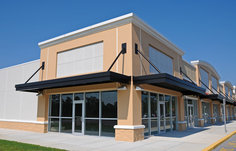By Claudia Pollak, Esq., Updated October 19, 2020

The Lease Commencement Date
Commercial leases typically will provide a rent commencement date, which may be the same as the lease commencement date. Or not. If the landlord is performing improvements to ready space for your arrival, a specific date for the commencement of rent payments could become a problem if that date arrives and you do not yet have possession of the premises because the landlord’s contractors are still working in your space. Nobody wants to be on the hook for rent payments for a space that cannot yet be occupied. A better approach is to avoid including in the lease a specific date for commencement, and instead state that the commencement date will be the date the landlord actually delivers possession of the premises to you. Alternatively, you can negotiate a provision that triggers penalties for the landlord or additional benefits for you, should the property not be available to you on the rent commencement date.
Lease Renewals
Your initial lease term will likely be a period of three to five years, or perhaps longer. Locking in long terms benefits the landlord, but can be off-putting for a tenant. Instead, you may be able to negotiate a shorter initial term, with the option to extend at a later date. This will afford you the right, but not the obligation, to continue with the lease for an additional period of years. Be sure that any notice required to terminate the lease or exercise your option to extend at the end of the initial lease term is clearly articulated.
Subletting and Assignment
If you are locked into a long-term lease, you will likely want to preserve some flexibility in the event that you outgrow the space or need to vacate the premises for other reasons. An assignment transfers all rights and responsibilities to the new tenant, whereas a sublease leaves you, the original tenant, ultimately responsible for the payments due under the original lease agreement. Tenants generally want to negotiate the right to assign the lease to another business, while landlords may prefer a provision allowing only for a sublease agreement.
Subordination and Non-disturbance Rights
What if the landlord fails to comply with the terms of the lease? If a lender forecloses on your landlord, your commercial lease agreement could be at risk because the landlord’s mortgage agreement can supersede your lease. If the property you are negotiating to rent is subject to claims that will be superior to your lease agreement, consider negotiating a “non-disturbance agreement” stating that if a superior rights holder forecloses the property, your lease agreement will be recognized and honored as long as you continue to fulfill your obligations under the lease.
Additional Costs and Expenses
For commercial leases, landlords often add extra costs and expenses that must be covered by the tenant, in addition to their monthly rental payment. These include real estate taxes, maintenance fees, cleaning of common areas, snow removal, and maintenance and repair of the heating and cooling systems. Be sure the lease clarifies how these extra charges are measured. For example, they can be individually metered or apportioned by square footage. Find out what costs are typically incurred by other tenants in order to budget properly.



